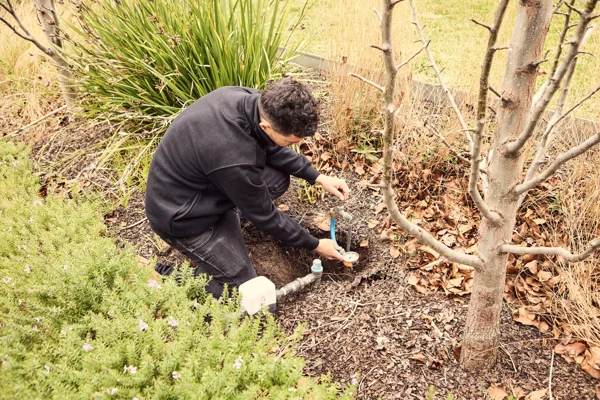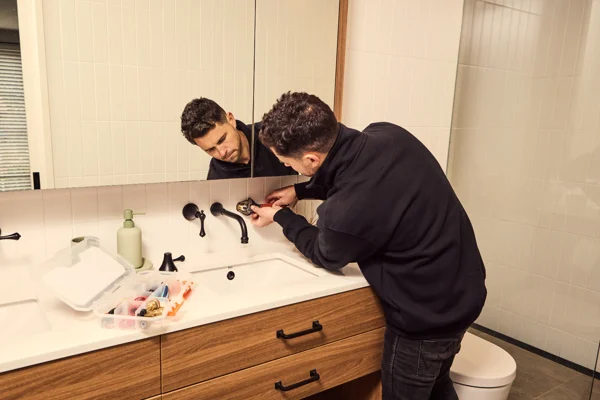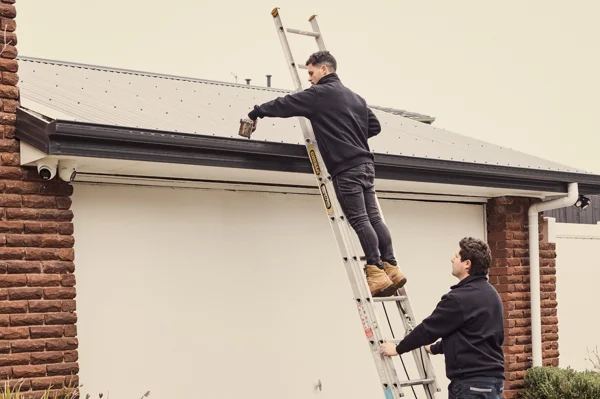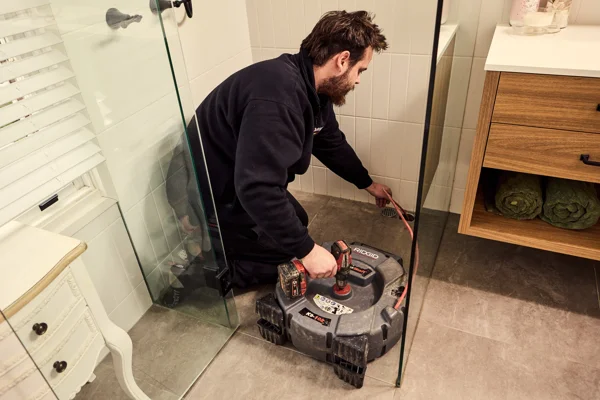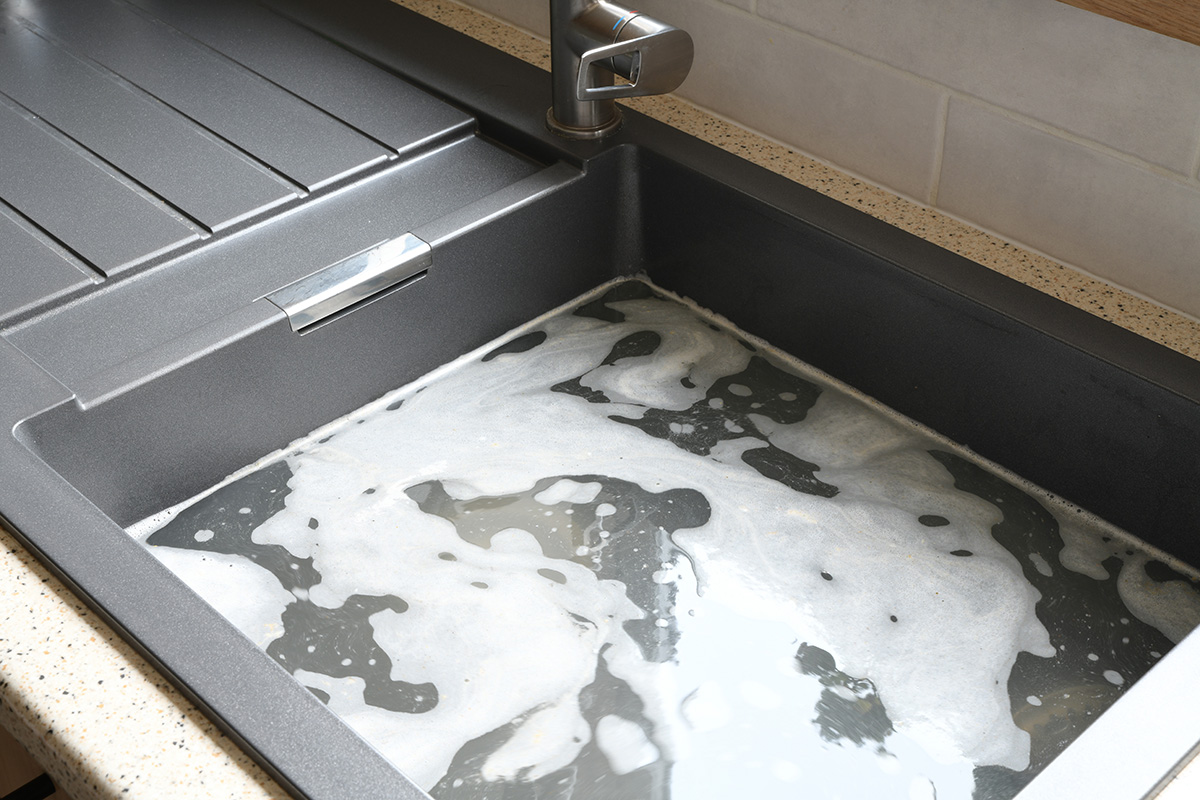Same-day blocked stormwater drain services in Melbourne
Outright Plumbing restores proper stormwater flow with same-day service and clear fixed pricing. With 25+ years’ experience and 700+ five-star reviews, we protect your home from flooding and water damage.
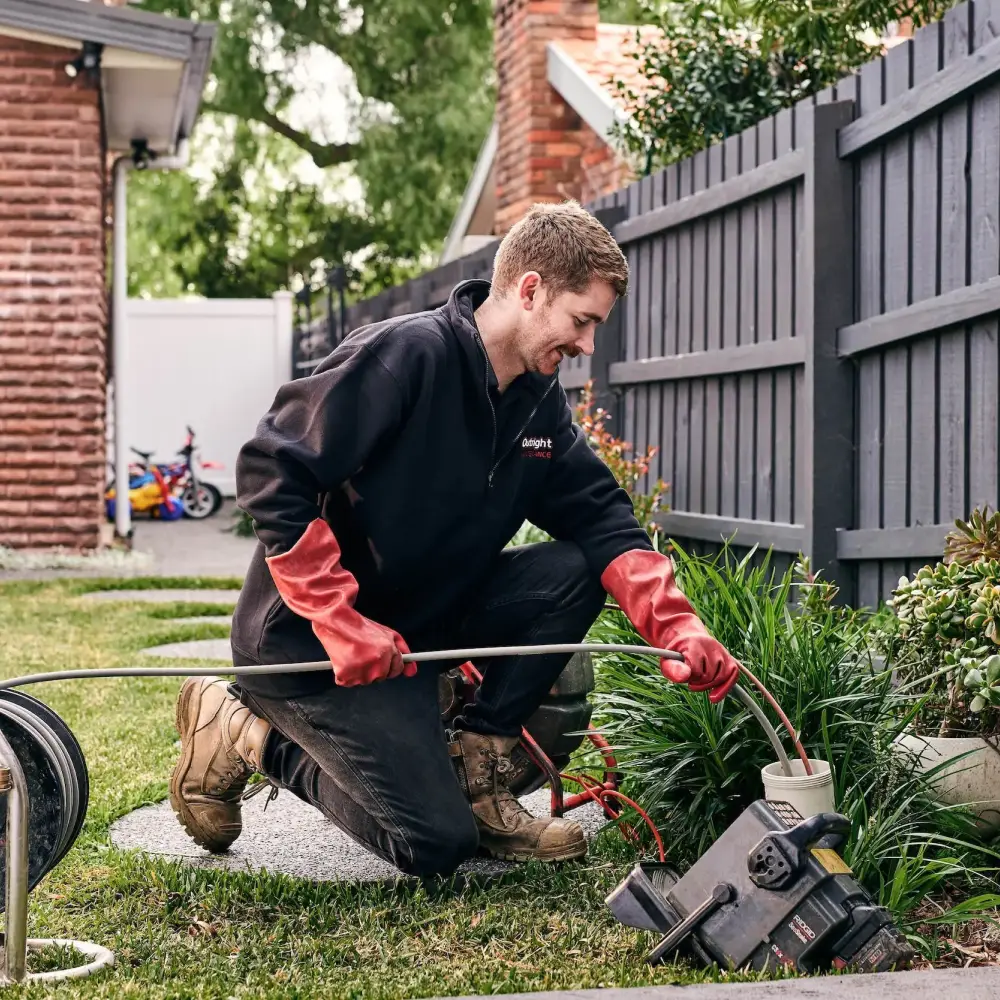


Our stormwater drain cleaning services protect you from the worst
A Melbourne downpour should wash cleanly off your roof and into the street. But when stormwater drains block or fail, that water ends up where it shouldn’t — pooling in the backyard, spilling into the garage, or creeping toward the house foundations. Outright Plumbing clears and repairs stormwater systems so the next storm doesn’t leave you with a mop and buckets.
- We clear silt, mud, and leaf build-up that chokes underground pipes.
- Damaged pits and collapsed drains are repaired or replaced properly.
- If your system’s too small for today’s weather, we’ll design an upgrade that works.

Plumbing services across your whole home
Cleaning stormwater drains is just one part of what we do. Outright Plumbing also takes care of everything from sewers and hot water to leaking taps and burst pipes. See the full list of services below.
Reviews from people who’ve trusted us
We’re grateful for every review that comes in. Those 700+ 5-star ratings aren’t just numbers. They’re neighbours and families who trusted us and felt looked after.
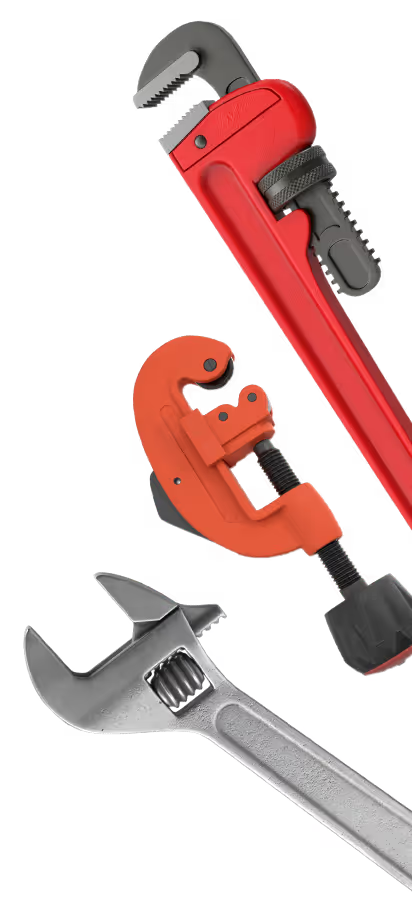
Stormwater drain problems we fix every week in Melbourne homes
Most stormwater issues look like a nuisance on the surface, but they all have specific causes underground. Here are the problems we’re called to most often.
Driveways and garages that flood after heavy rain
When surface drains aren’t connected properly or pipes are blocked, water follows the slope straight into garages and basements. We clear the lines, check the falls, and make sure outlets connect into stormwater so water flows away from the house, not into it.
Pits and grates choked with leaves or mud
Yard pits and grates are designed to catch debris before it enters the pipe, but when they’re neglected, they block fast. Water then spills over and erodes gardens or paths. We clean them out and, if needed, fit baskets or guards to make future upkeep easier.
Old terracotta pipes invaded by tree roots
Stormwater lines made from clay or terracotta are magnets for roots. Even a hairline crack is enough for roots to squeeze in and spread, blocking the line. We cut the roots back, flush the system clean, and show you the footage so you know if relining or replacement is needed.
Backyards that stay soggy because drains don’t fall properly
If pipes don’t have enough gradient, water stagnates instead of flowing away. These “flat” lines are notorious for leaving lawns wet and unusable. We diagnose the slope issue with cameras and levels, then replace or re-lay the line at the right fall.
What homeowners should know about stormwater drains
Stormwater systems are often out of sight and out of mind until they fail. But the way they’re designed, built, and maintained makes all the difference in how well they cope with Melbourne’s weather. Here are some facts and insights that don’t usually make it to the surface.
Stormwater pipes fill with silt and debris faster than you expect
Every downpour washes grit, sand, and leaves into the system. In Bayside’s sandy soils, that silt builds up quickly in older earthenware lines, reducing the effective pipe size by half. We’ve cleared 100 mm pipes that were narrowed down to just 40 mm with packed debris. Without regular flushing, the next heavy storm is almost guaranteed to cause flooding.
Pipe gradients are critical, and even small mistakes matter
Stormwater relies purely on gravity. A pipe that should fall at 1:100 but was laid at 1:200 holds water instead of moving it. That standing water lets silt settle and roots take hold. We often see pipes installed decades ago with the wrong fall, which means no amount of rodding will fix the problem permanently. That’s why the line needs to be re-laid correctly.
Council connections are the weakest link if not installed properly
Stormwater should always discharge into the council main. When connections are shallow, misaligned, or never installed in the first place, water simply dumps into gardens or soaks around footings. Over time this undermines slabs and foundations. We’ve been called to properties with cracked garage floors caused by nothing more than years of bad stormwater drainage.
Bigger pipes don’t always mean better drainage
It’s a common misconception that upsizing solves blockages. In fact, a 150 mm line carrying only light flows often moves water too slowly, letting debris settle. A correctly sized and graded 100 mm PVC pipe often performs better than an oversized line. That’s why proper design (matched to roof catchment and rainfall intensity) matters more than simply going bigger.
Seasonal cleaning makes systems last decades longer
Stormwater pits and grates are designed to catch debris before it hits the pipes. When they’re ignored, that debris ends up underground, accelerating blockages. A quick clean before winter rains can add years to the life of the system and prevent thousands in water damage repairs.
What our stormwater drain service includes
Stormwater blockages aren’t all the same. We tailor our approach to clear the immediate problem and address any underlying cause, so your system holds up in the next downpour.
Clearing pits, grates and pipework
We start with the basics: removing leaves, silt and debris from stormwater pits and grates, then clearing the pipework using jetting equipment when needed.
High-pressure jetting and root cutting
For tougher blockages, we use high-pressure water jets and specialised cutting tools to break through tree roots or compacted sediment without damaging the pipes.
CCTV inspections and long-term solutions
Where we suspect a structural fault, we run a CCTV camera through the line to pinpoint the issue. That lets us give you clear options, from targeted pipe repairs to ongoing maintenance programs that keep your drains flowing year-round.
Call us today for same-day stormwater help
When heavy rain hits, blocked drains can’t wait until tomorrow. Call Outright Plumbing now, and we’ll send a licensed plumber the same day to restore the flow and keep your property safe.
Our case studies prove we keep our word
Over the years, we’ve seen almost every plumbing problem, from burst pipes to blocked sewers. Each job is different, but the approach is the same: turn up on time, fix the issue properly, and leave the property in better shape than we found it.
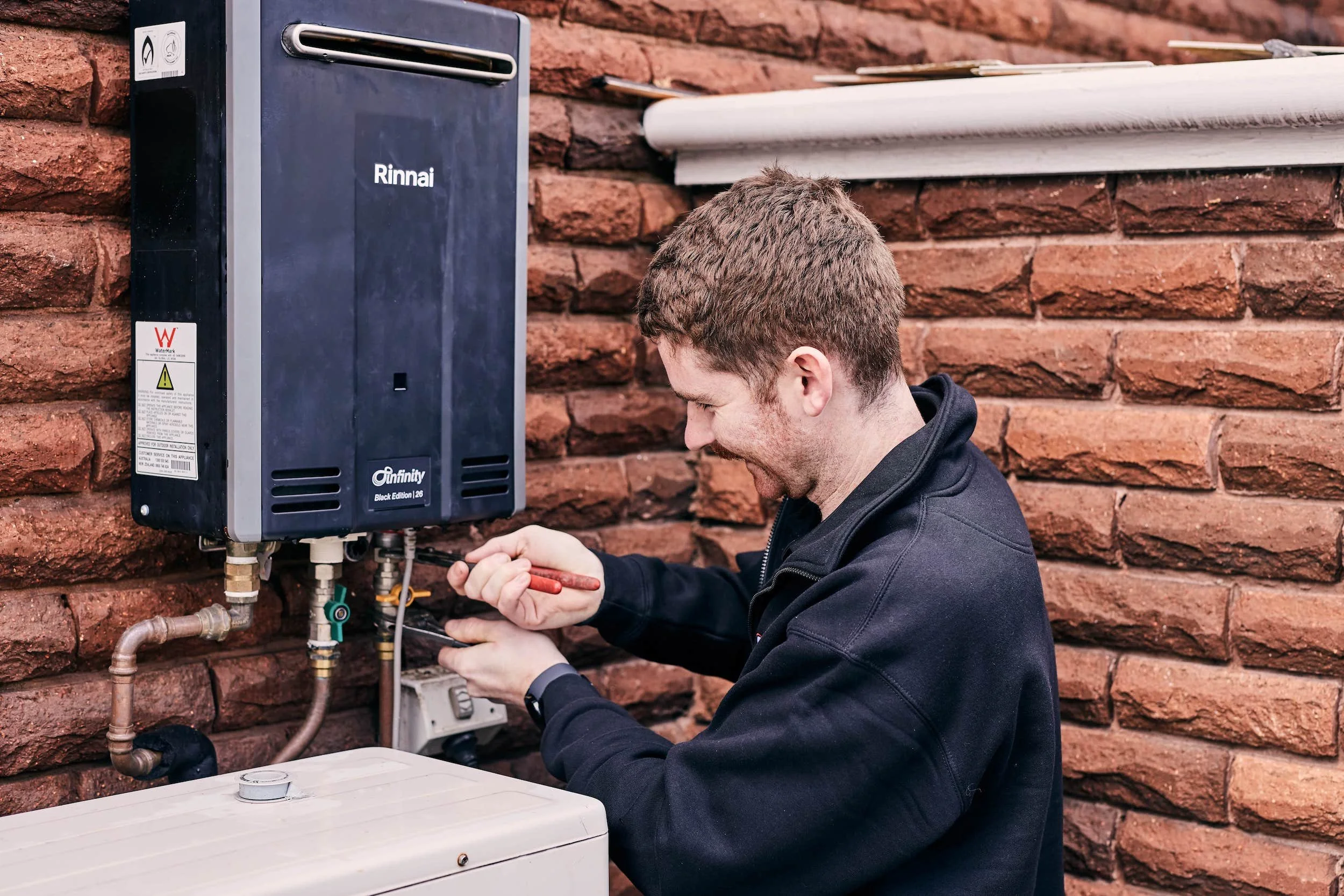



Stormwater drain cleaning for commercial properties and councils
From small yard drains to large public networks, our plumbers make sure stormwater flows where it should — away from people, property, and buildings. Outright Plumbing works with managers and councils to keep drainage networks clear and compliant.
- Apartments: Shared courtyards and driveways often flood when pits or pipes block. We clear, inspect, and provide reports so owners’ corporations can plan repairs properly.
- Retail and hospitality: A flooded car park or outdoor area means lost customers. We keep pits, grates, and outlets clear so heavy rain doesn’t shut you down.
- Schools and childcare: Blocked drains turn play areas and paths into slip hazards. We schedule work outside school hours to restore safe access quickly.
- Local councils: Street-side drains, sports grounds, and reserves all need regular clearing and inspection. We jet, camera, and report on public stormwater systems to keep infrastructure working and residents safe.
Browse our image gallery
Take a look through photos of our plumbing projects across Melbourne’s south.


Why households and property managers trust us with stormwater drains
Stormwater problems can turn into chaos fast, which is why people call Outright Plumbing when they want calm heads and capable hands.
Local knowledge that makes the job smoother
Because we’ve worked across Melbourne’s southern suburbs for decades, we know the usual trouble spots, like tree roots in sandy soil, old terracotta pipes, and even how local councils want drainage repairs handled. That experience saves you time and stress.
A promise that our work will hold
If a section we’ve cleared or repaired gives you trouble again, we’ll come back and fix it. No excuses. Our guarantee is simple: we stand by the work we do.
Advice you can actually trust
We’re not in the business of padding quotes or recommending shiny extras you don’t need. Our plumbers tell it straight, explain the problem clearly, and focus on the fix that keeps your drains working.
A membership that puts you first
Outright Club members get real perks, like discounts and priority callouts, which make life easier for busy property managers and business owners who can’t afford downtime when drains back up.
Where we work
We’re based in Bayside and cover Melbourne’s southern suburbs, from Brighton to Mordialloc and beyond. Wherever the storm hits, we’re close by.
Meet the team
We thought about getting glossy headshots, but plumbers posing in hard hats isn’t really us. You’ll meet the real faces when we show up at your door.
Our plumbers answer common questions about stormwater drains
Our team has explained everything you need to know in plain English, so you’re never left guessing about what’s happening underground.
Who is responsible for stormwater drains in Melbourne?
In most cases, you’re responsible for the drain section inside your property boundary. Once it connects to the council’s system, the responsibility shifts to them. The tricky part is knowing exactly where that changeover point is. We can use drain camera inspections to inspect the line, locate the boundary, and make sure you’re not paying to fix something that’s not yours. If the stormwater drain may be damaged near the handover, we’ll let you know before it causes bigger issues.
How do you unclog a stormwater drain?
We begin by inspecting the line with CCTV technology to see the cause of the drain blockages. Once we’ve found it, we use high-pressure jetting to unblock your stormwater and flush the line clean. If repairs are needed, we can carry them out on the spot to prevent further damage to your property.
How much does it cost to clear a blocked stormwater drain in Melbourne?
In Melbourne, booking a plumber to clear a blocked stormwater drain will typically cost around $300. It may dip under that slightly, or it may go much higher: costs depend on the cause, location and severity of the blockage.
A simple job like clearing blocked stormwater drains might be done in under an hour, while repairing a broken sewer line will take longer. We’ll inspect first, explain your options, and give you a fixed price so you know exactly what you’re paying for.
What are the signs my stormwater drain is blocked?
Keep an eye out for slow water flow from downpipes, pooling water in your garden after light rain, or overflowing gutters during heavy downpours. Stormwater drains can become blocked gradually, so you might also notice foul smells or damp patches that don’t dry out. The earlier you spot these, the easier it is to fix. Our plumbing maintenance service can help catch these issues early.
Will you need to dig up my garden to fix a blocked stormwater drain?
Not always. Many blockages can be fixed with our unblocking process, using high-pressure water jetting without touching the garden at all. Digging is only needed if the stormwater drain may be structurally damaged or collapsed. In that case, we can repair the section or reline the pipe without replacing the entire stormwater system.
How often should stormwater drains be inspected or cleaned?
For most Melbourne properties, once a year is enough. But if your place sits under big trees, has old pipes, or is in a low-lying area, it’s worth scheduling checks every six months. It’s worth booking a qualified Victorian plumber for regular plumbing check-ups, like clearing blocked drains before the rainy season.
Do you work on both residential and commercial stormwater systems?
Yes. We help homeowners, property managers, and business owners right across Melbourne. Residential systems usually deal with smaller-scale blockages like leaves and silt, while commercial sites might need more powerful methods for larger drainage systems. When it comes to blocked stormwater drains and pipes, we bring the right tools and skills to every job.
Can I book you before a storm to make sure my drains are clear?
Absolutely. In fact, we recommend it if heavy rain is on the way. We can inspect the line, clear any obstruction, and check for weak points that could lead to damage to your property. If there’s a risk, we’ll fix it or give you preventative tips. And because our emergency plumbers are available 24 hours a day, you can call a professional even if the weather turns suddenly.
Helpful tips from our blog
If you’re interested in keeping your plumbing in good shape, here are some of our most useful reads:
Yes, plumbers have an Instagram
We know following plumbers online sounds strange. But if you’re curious about the less glamorous side of plumbing (and the occasional flooded pit), we post it there.
Book your stormwater service today
Blocked stormwater drains only get worse if left alone. Call or book Outright Plumbers online now, and we’ll send a licensed plumber the same day to get your system flowing again.






.svg)

.svg)






.svg)







.svg)











.svg)


